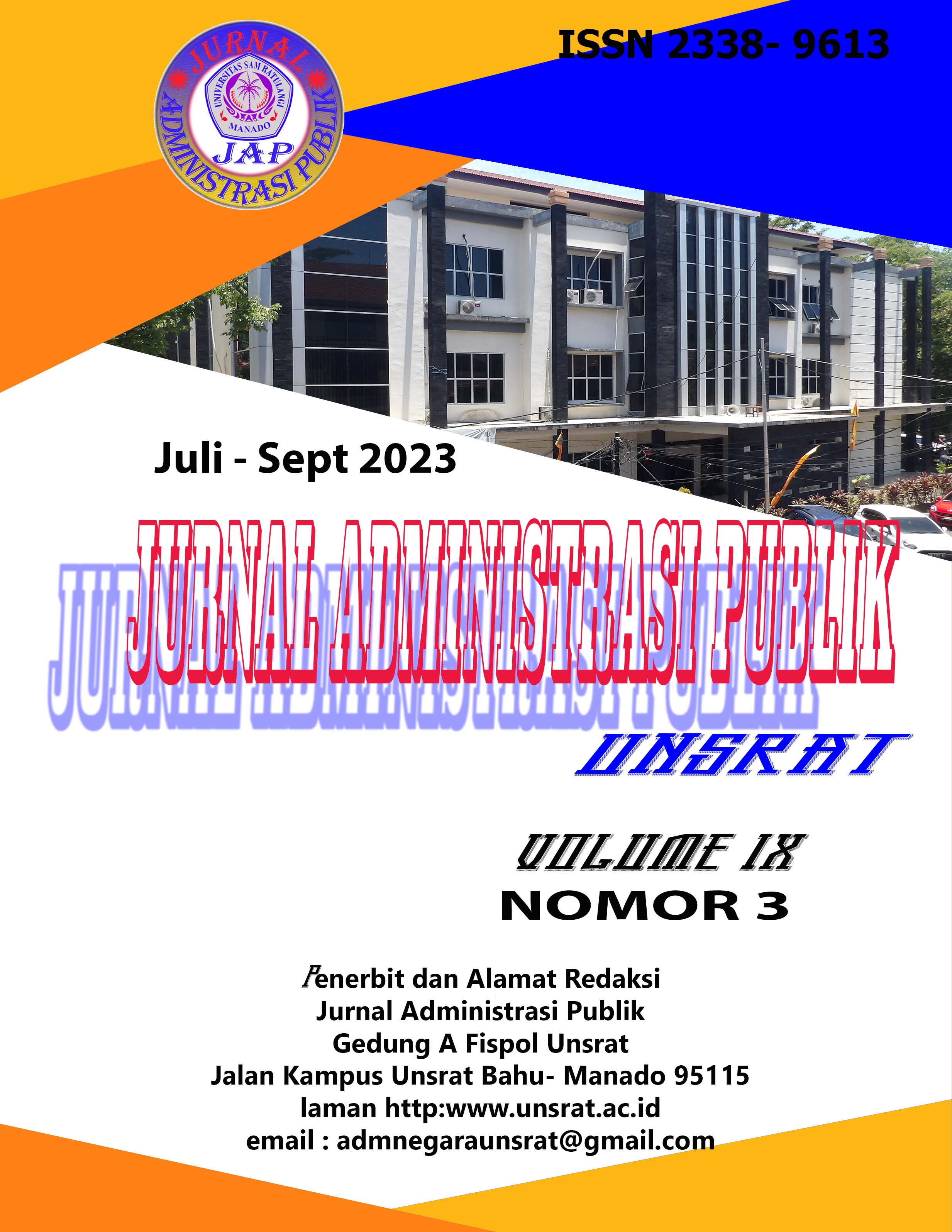Dampak Penggunaan Fingerprint dalam Peningkatan Disiplin Kerja Tenaga Harian Lepas pada Sekretariat Dewan Perwakilan Rakyat Daerah Kota Manando
DOI:
https://doi.org/10.35797/jap.v9i3.49551Abstract
The purpose of this article is to determine the causes of the fingerprint's net when implementing the THL discipline at the DPRD Kota Manado. This paper employs a descriptive method for measuring quality. In this case, the information comes from the office, the employee and THL. The discipline of discipline can be broken down into four categories: the impact of policies based on circumstances or groups in the first target or main objective of the policy, the impact of policies based on conditions at that time and conditions in the upcoming mass, and the impact of policies based on current conditions Observations, surveys, and studies are used to collect data using Miles and Huberman's statistical analysis models and techniques. It should be noted that despite the fact that the discipline of THL is present, it does not prevent the impact of using fingerprints from affecting problems or weaknesses in using fingerprints, namely constraints from the individual in question. Despite the fact that there was an error that had occurred, there was still a THL that was missing, and it continued to do so after the wake-up call had been made. However, as a result of the correction process described above, THL continued to be suspended for a longer period of time. In addition, there is a common denominator among the participants, which is the presence of an expert that is essential for the development of the fingerprint, and it is essential for the operationalization of the fingerprint.
Keywords : Impact, Use of fingerprint, Work disiplin








